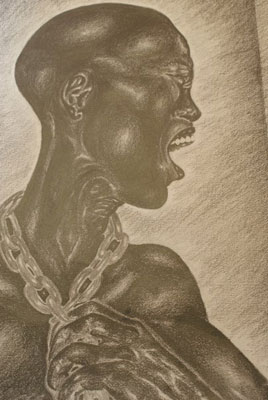All Nonfiction
- Bullying
- Books
- Academic
- Author Interviews
- Celebrity interviews
- College Articles
- College Essays
- Educator of the Year
- Heroes
- Interviews
- Memoir
- Personal Experience
- Sports
- Travel & Culture
All Opinions
- Bullying
- Current Events / Politics
- Discrimination
- Drugs / Alcohol / Smoking
- Entertainment / Celebrities
- Environment
- Love / Relationships
- Movies / Music / TV
- Pop Culture / Trends
- School / College
- Social Issues / Civics
- Spirituality / Religion
- Sports / Hobbies
All Hot Topics
- Bullying
- Community Service
- Environment
- Health
- Letters to the Editor
- Pride & Prejudice
- What Matters
- Back
Summer Guide
- Program Links
- Program Reviews
- Back
College Guide
- College Links
- College Reviews
- College Essays
- College Articles
- Back
I See Color
One day on my family’s farm, my dad was helping a customer at our farmstand when woman walked in and asked to speak with my dad. Still busy with the first customer, my dad politely asked the woman to wait.
Nearly a half-hour later, the first customer left with a bag full of meat, and when my dad looked around the farmstand for the woman, she was gone. He looked outside and found her walking to her car.
My dad ran after her and apologized. “I was not ignoring you,” he tried to explain.
The woman admitted, “I thought you weren’t going to talk with me because I’m black.”
My dad shook his head, “No, ma’am. The Good Lord has delivered me from seeing color.”
From a young age, my parents taught me that people of color were no different for their skin color than I was for my hair color, and my school taught me that slavery is a thing of the past that only bad people partook in. That’s what I believed, until I began reading slave accounts and the history of slavery. I found out that the history I was taught in school and the stories I was told as a child were wrong. It seems that the brutality of America’s history was hidden from me, hidden from everyone.
I was taught that only bad farmers in the South owned slaves.
Lie.
George Washington, the man my history books taught me to idolize, owned slaves. No, not just a few. He owned over 300 black women, men, and children in conditions described as: a small room with a dirt floor and only a few planks of wood to call furniture.
I was taught that slavery was an abnormality, left to the people who were dark-hearted enough to hold a whip.
Lie.
The slave market was as normal as today’s stock market and gave jobs to people who considered selling other humans normal.
I was taught that slaves were mistreated.
Lie.
Slaves were tied to trees, lashed with a whip until bone showed, and made to sleep on the ground with the smell of their skin slowly rotting.
Hell, I wasn’t even taught why we call dark-skinned people African-Americans!
I was never told that my white ancestors stole tribes of people from Africa, shoved them under the deck of a ship where they could not stand, did not feed them, and did not take out the dead bodies until the stench almost choked the others.
When I read the truth, I sobbed ugly, remorseful tears for the woman who wasn’t allowed to have a proper funeral for her baby that drowned in a feeding trough. I wanted to rip the book when I read a young girl’s account of her slave master repeatedly raping her. I wanted to scream for all these people who I couldn’t help. And after I’ve calmed down, I realize, these brutalities still exist, and I may not be able to help the people in these books, but I can help the people who live now, experiencing the same thing.
We cannot face the sheer brutality of America’s history for one reason: it is true.
Slavery is not just a story about something that may-or-may not have happened to someone who lived a long, long time ago. No. It happened to real people, at the hands of real people.
When I see someone of color, I have the deepest respect for her/him.
I used to ignore people of color, thinking, “Why should I look at them any differently than anyone else?”
But now, I say to myself, “There is someone whose ancestors lived through unspeakable brutality, and I am seeing this person today because they have survived.”
Unlike my dad, I see color. I do not see color out of prejudice, ignorance, or hate. I see color out of respect, repentance, and love.

Similar Articles
JOIN THE DISCUSSION
This article has 0 comments.

I am a caucasian, young woman, and I am passionate about equality. I enjoy researching and reading about a wide variety of minorities and finding new ways to raise awareness for those who need a voice. I've learned that knowledge is the ultimate killer of ignorance, and knowledge has helped me love others who could use a little more love. I'm still learning, and I have a lot more to learn from this world. This piece is one way I have grown to respect and love the African-American people of my community.